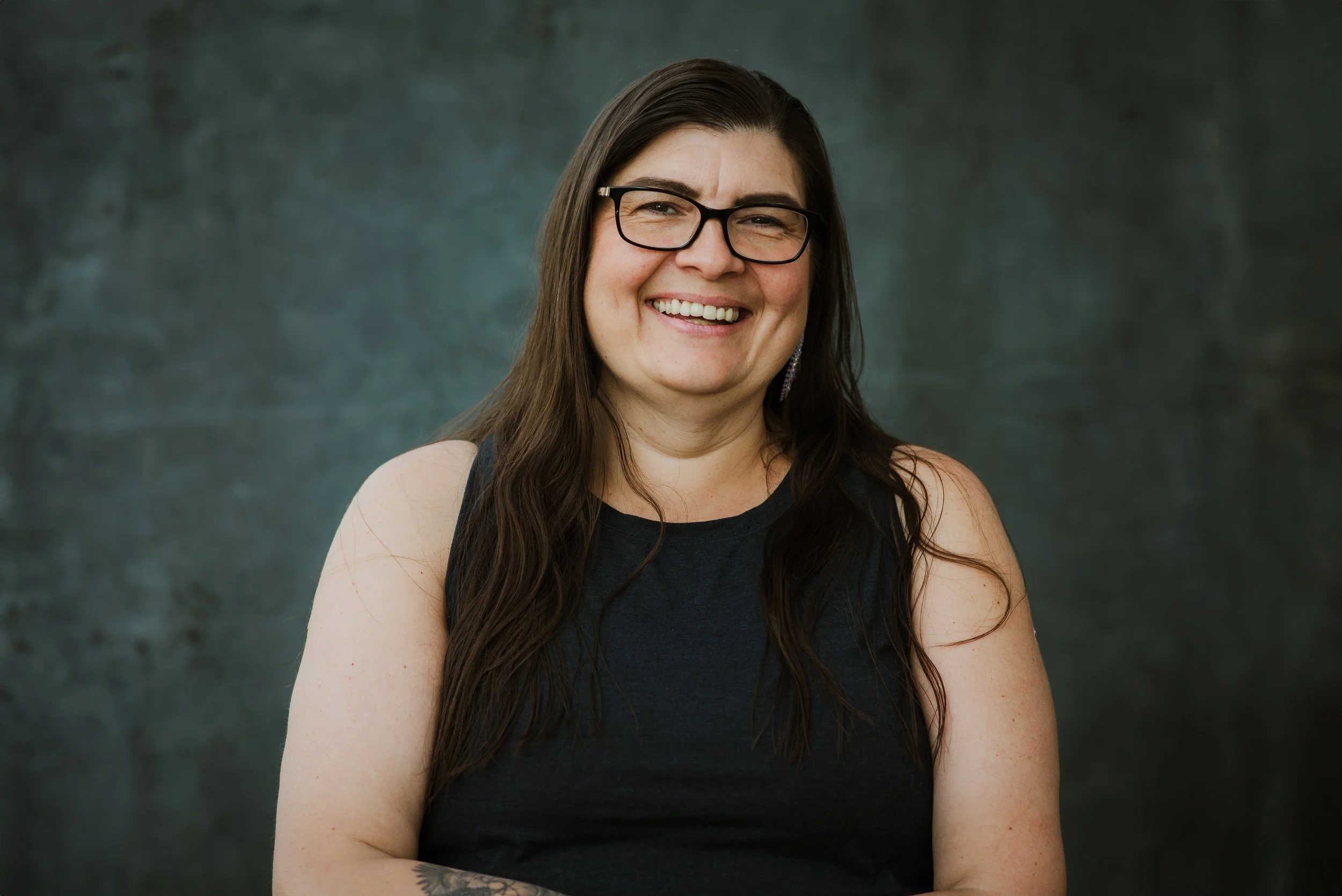Pamela
Pamela’s journey has been marked by significant challenges, including homelessness, intergenerational trauma, incarceration, and navigating the foster care system. For many years, they struggled to find hope, feeling disconnected from themself, their culture, and their community. It was through self-help groups, peer support, cultural teachings, and compassionate mentorship that they were able to reclaim their life and step into a leadership role.
Now, Pamela uses their experiences to support others on their recovery journeys, ensuring they have access to the guidance and community they once needed. They believe that mental health systems must be transformed to center lived experience, peer support, and culturally safe care.
Beyond their direct support work, Pamela is an active advocate for systemic change. They sit on multiple committees, ensuring that Indigenous voices and lived experiences are included in decision-making spaces. Their work focuses on eliminating barriers to mental health care, advocating for culturally grounded approaches, and addressing the root causes of homelessness among women and gender-diverse people.
Pamela is also a parent of five and grandparent of five, and their family remains their greatest motivation. They continue to empower others by sharing their story, reminding them that healing is possible and that everyone deserves to be seen, heard, and supported in their journey toward wellness.
Their message to those struggling: “No matter how lost you feel, there is always a way forward. Reach out, connect, and don’t give up—your story isn’t over.”
Q&A
Can you share a bit about yourself and what inspired you to join the Council?
I am an Indigenous Cree person from Beaver Lake Cree Nation in Treaty Six Territory, and I have been on my recovery journey for over 17 years after struggling with mental health and substance use challenges. For many years, I felt hopeless, lost, and disconnected from my spirit and community. I navigated homelessness, the foster care system, and the criminal justice system before finding my way to healing through self-help groups, cultural practices, and community support.
Today, I work as an Indigenous Wellness Coordinator at Henwood Treatment Center and as a Recovery Life Skills Coach/Mentor for Drug Treatment Courts across Alberta. I joined the Council because I believe that people with lived and living experience must be at the table, shaping the policies and systems that impact them directly. I want to bring forward voices that often go unheard and advocate for culturally responsive, community-led mental health supports.
What do you personally bring to the Council? (What are the unique perspectives that you bring?)
I bring the perspective of someone who has lived through and overcome the systemic barriers that so many people still face today. I have experienced homelessness, incarceration, intergenerational trauma, and the mental health system firsthand, and I understand how difficult it can be to access the right supports.
In my work, I focus on peer support, recovery-oriented approaches, and cultural healing practices, ensuring that others can find their way to wellness in a way that respects their identity, background, and lived experience. I also sit on various committees advocating for system change, using my voice to push for policy reform and trauma-informed care.
What are your interests outside of mental health advocacy?
My culture and community are at the heart of everything I do. I am a parent of five and grandparent of five, and my biggest joy is being present for my family in a way that I couldn’t before my recovery journey. I love teaching and learning from others—especially when it comes to cultural traditions, storytelling, and healing practices.
I also work closely with Indigenous and community-led initiatives that focus on preventing and eliminating homelessness among women and gender-diverse people. My goal is to empower people to reclaim their voice, their power, and their connection to community.
What are your hopes for the future of mental health in our community?
I want to see mental health services become truly accessible, culturally inclusive, and community-driven. Too often, people seeking help are met with barriers, judgment, or services that don’t fit their needs. I believe that healing is not one-size-fits-all—people need to be able to access supports that are holistic, trauma-informed, and grounded in community care.
I also want to see more opportunities for peer support and lived experience leadership. The people who have been through these struggles know what works and what doesn’t—and they should be leading the way in shaping mental health systems.
What message would you like to share with someone who might be struggling with their mental health right now?
You are not alone, even if it feels like you are. I know how overwhelming it can be to feel like there’s no way forward, but healing is possible. Even if you can’t see it yet, hold on to the hope that things can change.
Reach out to someone—even if it’s just one person. Your story is not over. Keep going.

